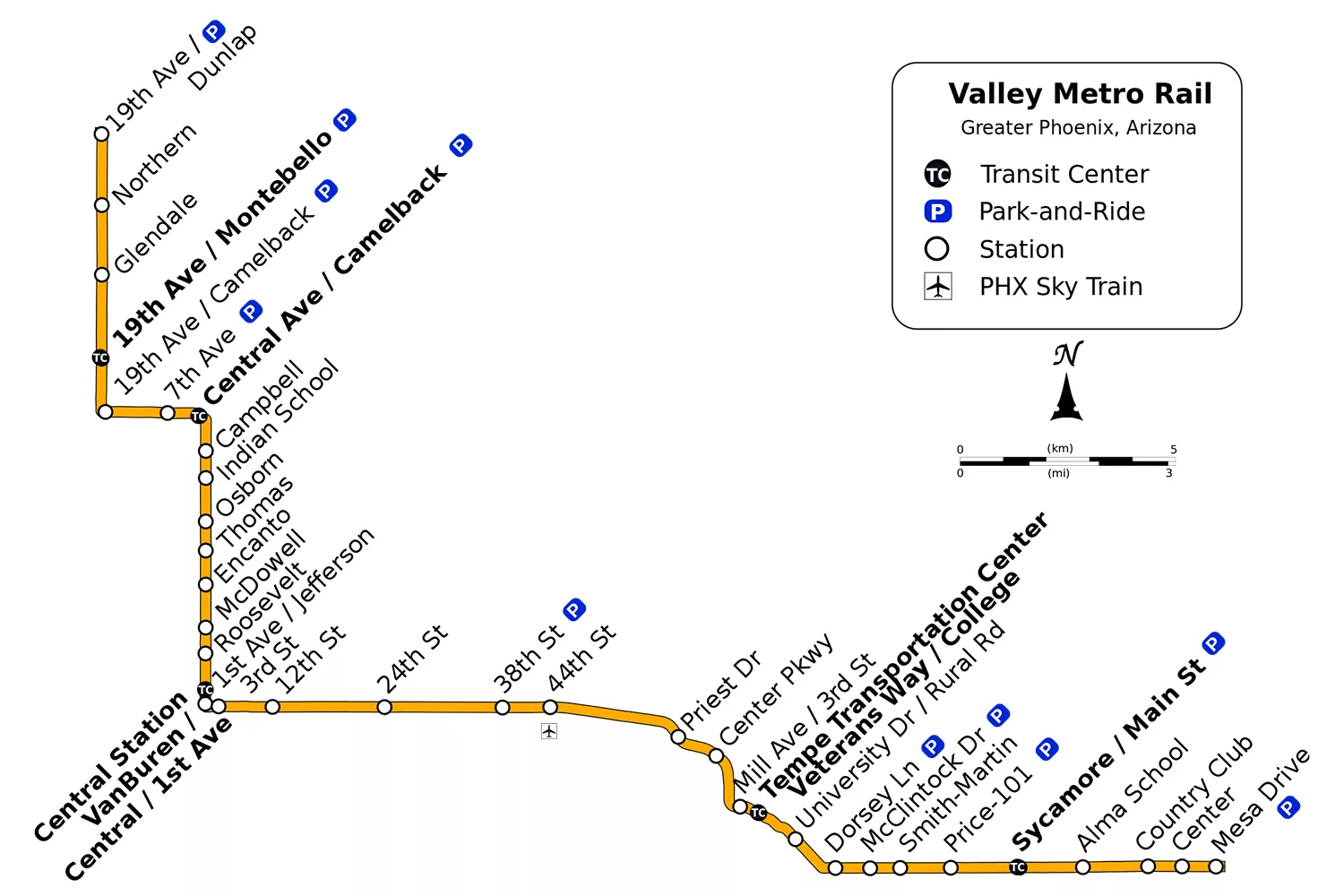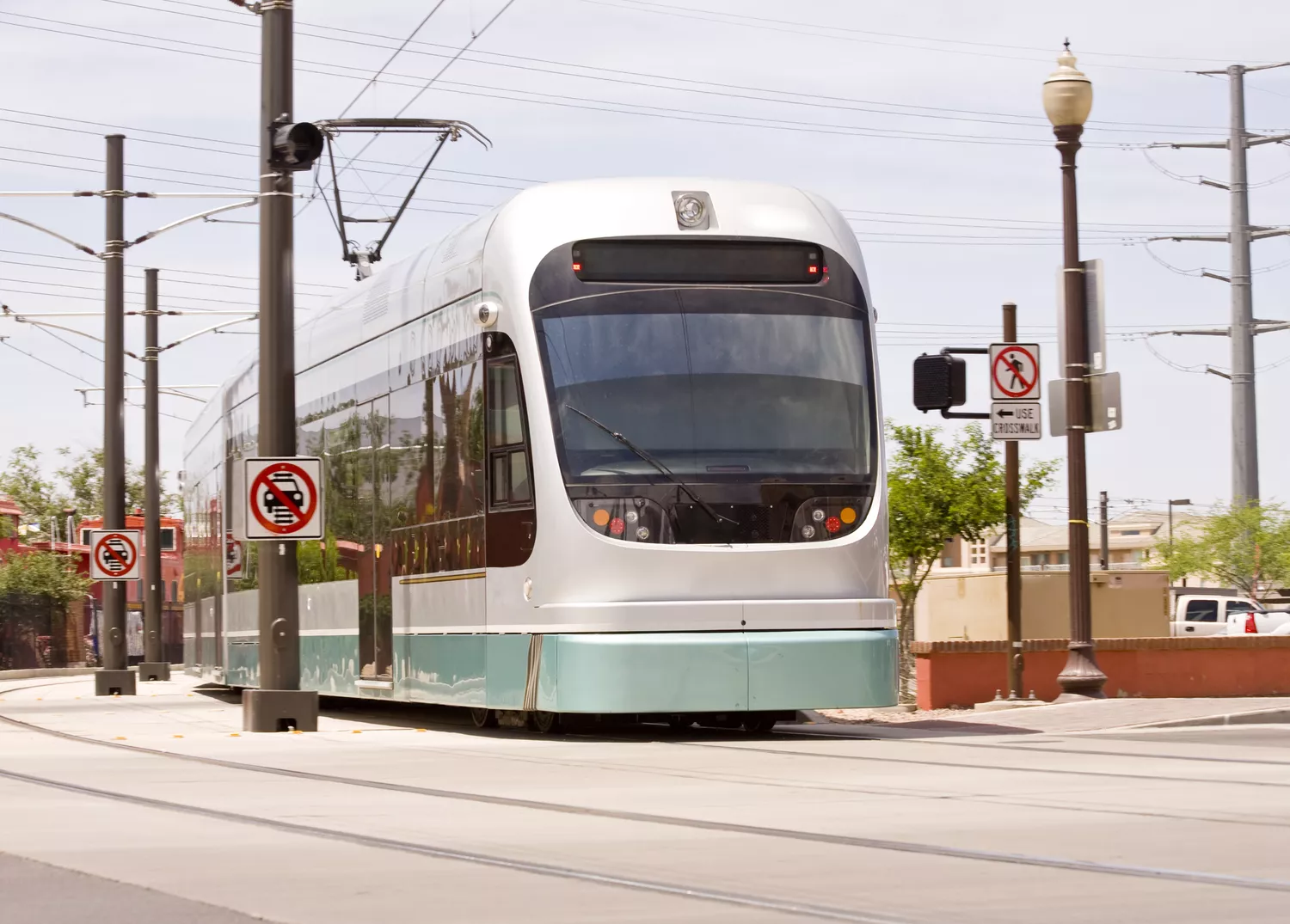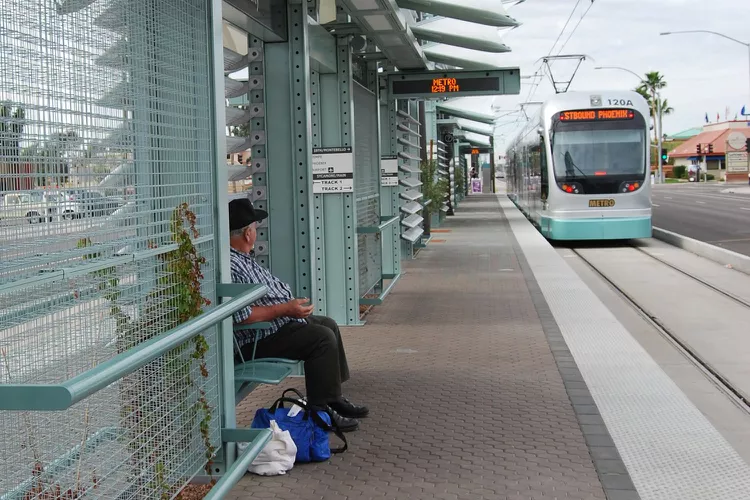Summary
25-Mile Rail Commuter Trains Average 50,000 Daily Riders
The Valley Metro Rail system, locally referred to as the light rail or called the “Metro,” provides over 25 miles of public transportation for central Phoenix, downtown Tempe, and downtown Mesa, Arizona. Since its operation began in 2008, it has attained an average daily ridership of approximately 50,000 people.
Furthermore, discover vital details about the Valley Metro Rail, from park-and-ride options and station guidelines to traffic tips and information on purchasing tickets and passes.
General Info About the Metro
The Valley Metro Rail route consists of a single line with 35 stations, and plans for expansion are already underway. A complete journey from one end to the other takes about 80 minutes. The train operates daily but has limited hours for early morning shut-downs. It can reach a maximum speed of 58 miles per hour, and each car accommodates 66 passengers with standing room for 200. Typically, a train consists of three cars.
Zoomable Map of Stations

An interactive map showcasing the light rail stations in Phoenix, Tempe, and Mesa includes various attractions and points of interest located near each station.
Interactive Map of Hotels

Explore a detailed map that highlights the Valley Metro Rail stations in Phoenix, Tempe, and Mesa, along with hotels and motels located within half a mile of the light rail. This guide can assist in planning your travel logistics effectively; thus, you might find that renting a car becomes unnecessary with proper planning.
Valley Metro Rail Fares

Various fare options are available based on the type of pass purchased. You can obtain a single-trip ticket, a one-day pass, a 15-day pass, or a monthly pass, each with different pricing. Notably, children under six can travel for free. Additionally, passes—excluding one-trip tickets—are transferable between bus and light rail systems, with reduced fares available for students, seniors, and individuals with disabilities.
Connection to Phoenix Sky Harbor International Airport

Phoenix Sky Harbor International Airport provides a free people mover that links directly to the Valley Metro Rail system. Passengers can board the PHX Sky Train from the 44th St/Washington light rail station to access all terminals and the East Economy parking lot at the airport.
History of the Light Rail

In 2000, local residents voted to increase sales taxes to fund the construction of a regional transportation system. The light rail construction officially started in 2005 and became operational three years later. Currently, expansion plans are underway.
The idea of a surface rail system is not a recent development. The Phoenix Street Railway operated streetcar service from 1887 until 1948. Initially using horse-drawn carts, the system was electrified by 1893. However, in 1947, a devastating fire destroyed most of the streetcar fleet, leading the city to modernize by replacing streetcars with buses—an approach that lasted nearly 60 years until the light rail emerged.
Your Safety

It is important to note that light rail trains operate alongside car traffic. Most accidents involving light rail trains and vehicles happen when cars disregard traffic signals or when pedestrians fail to cross legally.





